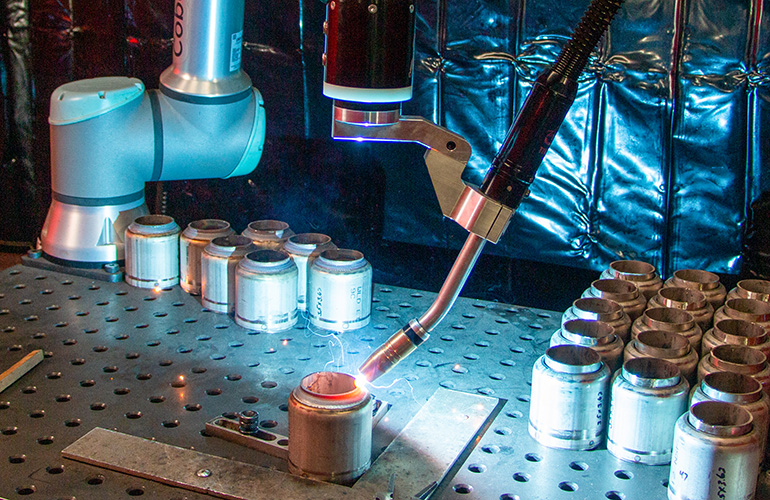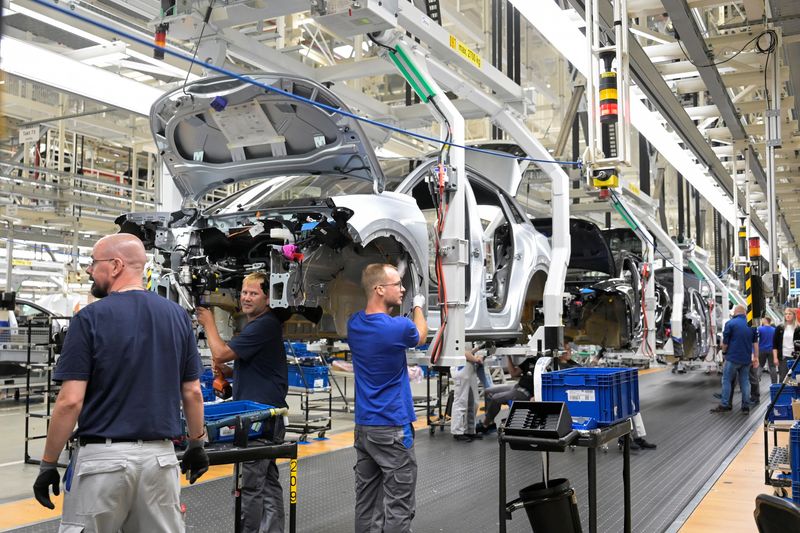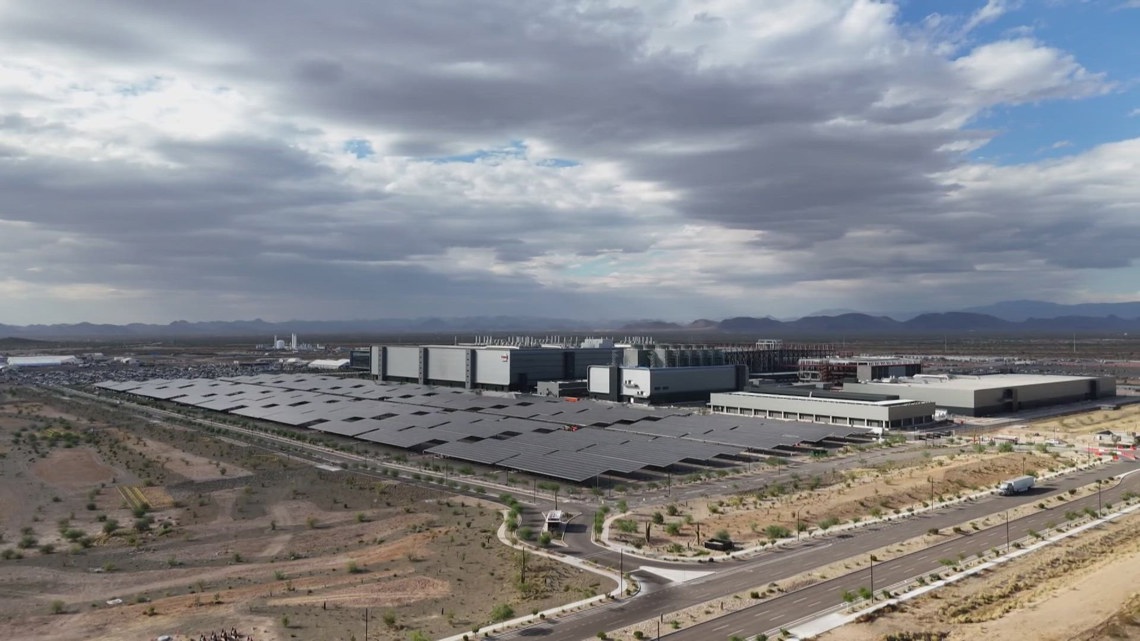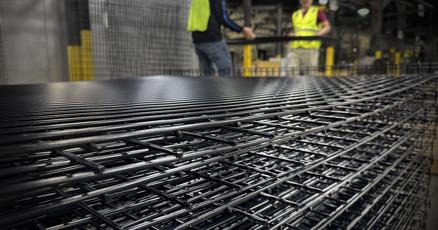Manufacturing's Masculinity Problem: Why Workers Are Turning Away from Trump-Era Job Promises
Manufacturing
2025-04-17 12:07:54Content

Despite President Trump's bold claims that tariffs will revive American manufacturing, workers tell a different story. The promise of returning to factory floors seems increasingly disconnected from the economic realities and career aspirations of modern American workers.
While Trump has consistently championed tariffs as a lifeline for industrial jobs, most Americans envision their professional futures far from traditional assembly lines. The workforce is increasingly gravitating towards technology, service, and knowledge-based careers that offer more dynamic opportunities and higher earning potential.
The manufacturing landscape has fundamentally transformed. Automation, advanced robotics, and artificial intelligence have dramatically reduced the need for manual labor. Today's manufacturing jobs require sophisticated technical skills and advanced education, not just physical strength and repetitive tasks.
Young professionals are more likely to pursue careers in software development, digital marketing, healthcare, and emerging tech sectors. The romantic notion of rebuilding America's industrial might through tariffs fails to acknowledge the profound shifts in workforce preferences and global economic dynamics.
Moreover, many workers recognize that protectionist policies alone cannot reverse decades of industrial decline. Sustainable job creation requires comprehensive strategies involving education, workforce training, and strategic economic investments.
Trump's tariff narrative might resonate politically, but it increasingly rings hollow for a workforce looking forward, not backward. The future of American employment lies in innovation, adaptability, and embracing the digital transformation, not in attempting to resurrect a manufacturing model from the past.
The Shifting Landscape of American Manufacturing: Beyond Assembly Line Myths
In an era of rapid technological transformation and global economic shifts, the narrative of manufacturing jobs in the United States has become increasingly complex and nuanced. The traditional image of workers on assembly lines, once a cornerstone of American industrial identity, is rapidly evolving, challenging long-held assumptions about industrial employment and economic revitalization.Reimagining Industrial Opportunity in a Digital Age
The Technological Revolution in Manufacturing
The contemporary manufacturing landscape bears little resemblance to the industrial paradigms of previous decades. Advanced robotics, artificial intelligence, and sophisticated automation technologies have fundamentally restructured production processes, rendering traditional assembly line work increasingly obsolete. Modern manufacturing demands a workforce equipped with advanced technical skills, digital literacy, and adaptive problem-solving capabilities. Emerging technologies like additive manufacturing, machine learning, and precision engineering have transformed factory environments from manual labor-intensive spaces to high-tech innovation centers. Workers today are more likely to be programming sophisticated machinery, analyzing complex data streams, and managing intricate technological ecosystems than performing repetitive manual tasks.Economic Policy and Job Market Dynamics
Political rhetoric surrounding tariffs and manufacturing job restoration often oversimplifies the intricate economic mechanisms driving industrial employment. While protective trade policies might create short-term incentives for domestic production, they cannot single-handedly reverse decades of structural economic transformation. The global competitive landscape demands more than protectionist measures. Successful industrial strategies require substantial investments in workforce training, technological infrastructure, and educational programs that prepare workers for the sophisticated demands of modern manufacturing environments.Skills and Education: The New Manufacturing Workforce
Contemporary manufacturing careers demand a sophisticated blend of technical expertise, digital competence, and adaptive thinking. Community colleges, vocational training programs, and technical institutes are increasingly developing curricula that bridge traditional industrial skills with cutting-edge technological knowledge. Emerging professionals in manufacturing are more likely to be data scientists, robotics engineers, and advanced systems analysts than traditional assembly line workers. These roles offer higher salaries, greater job satisfaction, and more opportunities for professional growth compared to the repetitive tasks of previous manufacturing generations.Regional Economic Transformation
Different regions across the United States are experiencing unique manufacturing evolutions. Some rust belt communities are successfully reinventing themselves through advanced manufacturing clusters, while others struggle to adapt to rapidly changing economic landscapes. Successful regions are characterized by collaborative ecosystems involving educational institutions, local governments, technology companies, and workforce development programs. These integrated approaches create sustainable pathways for industrial innovation and employment opportunities.Global Competition and Technological Innovation
The future of American manufacturing is intrinsically linked to technological innovation and global competitiveness. Successful industrial strategies must prioritize research and development, foster entrepreneurial ecosystems, and create flexible, adaptable workforce training models. Emerging technologies like artificial intelligence, quantum computing, and advanced materials science are reshaping manufacturing's fundamental capabilities. The most successful industrial economies will be those that can rapidly integrate these technologies into production processes and workforce development strategies.RELATED NEWS
Manufacturing

Robots, Reimagined: How Collaborative Machines Are Revolutionizing Manufacturing Efficiency
2025-02-28 19:27:11
Manufacturing

Trump's Trade Gambit: Tariffs Spark Hope, but Manufacturing Revival Faces Steep Climb
2025-04-04 00:21:58
Manufacturing

Manufacturing Rebounds: Germany's Industrial Pulse Strengthens, PMI Data Reveals
2025-04-01 08:48:51





